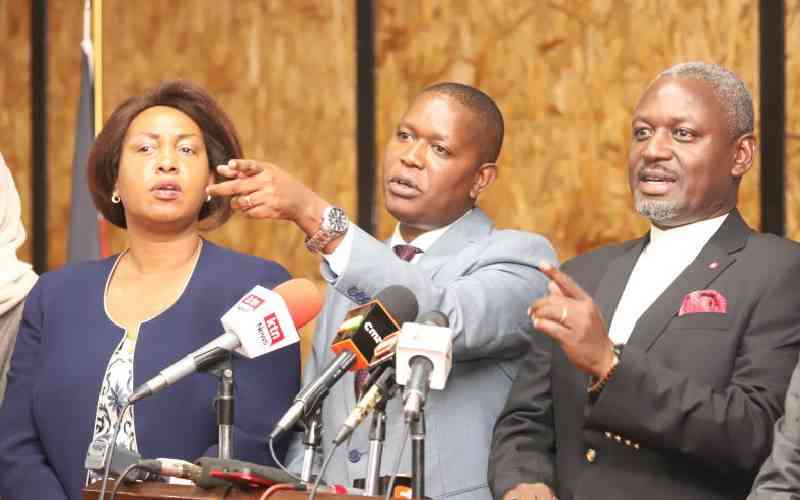×
The Standard e-Paper
Smart Minds Choose Us

Talks have been going on. These have serious implications for our nation and its future. The talks focus on national concerns. The talks also focus on individuals.
The 'personal' issues figure Azimio la Umoja coalition leader Raila Odinga. The ODM leader represents not himself or even his family's legacy in the national tapestry. He represents millions of Kenyans who have consistently voted for him over four national elections over fifteen years.